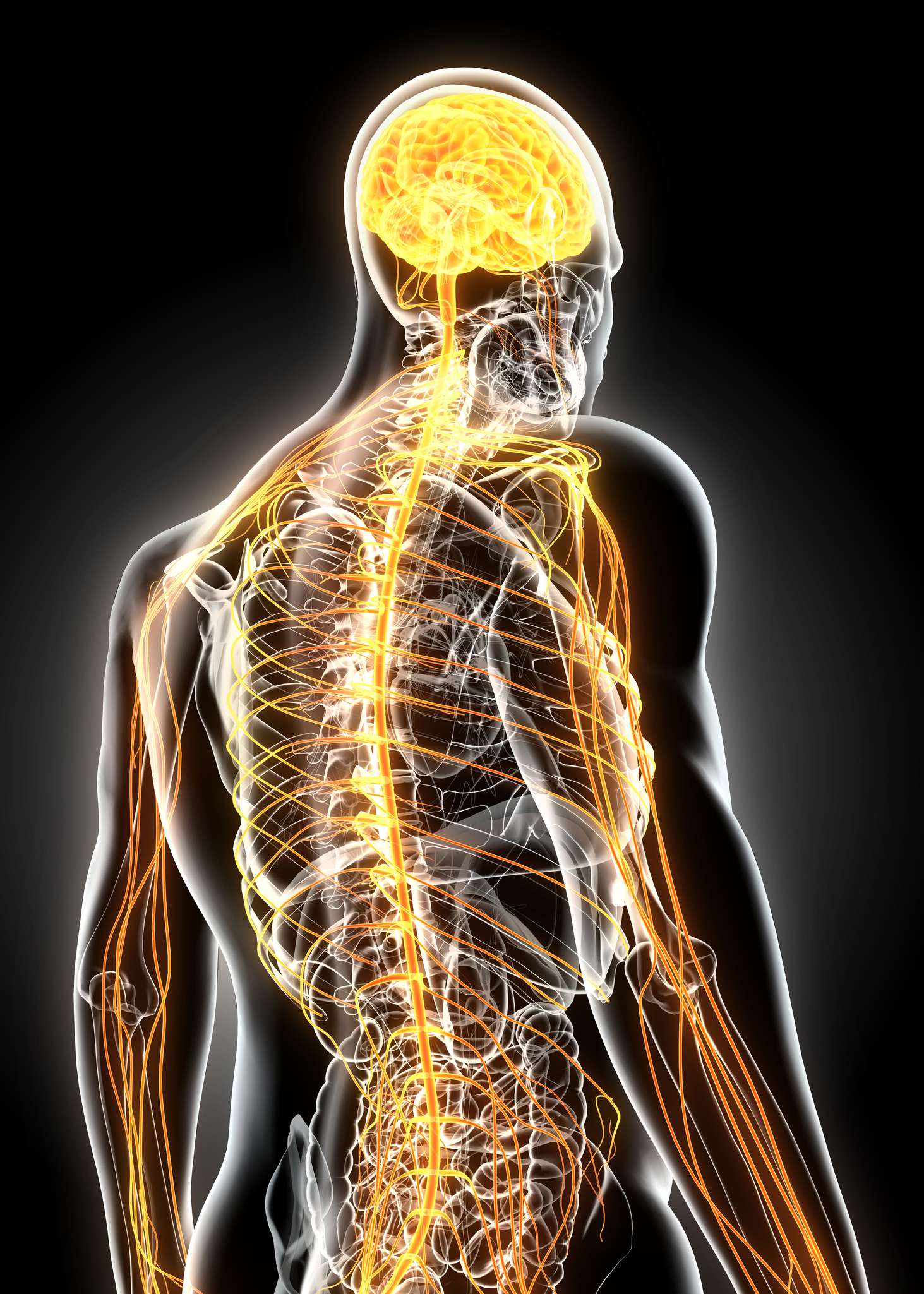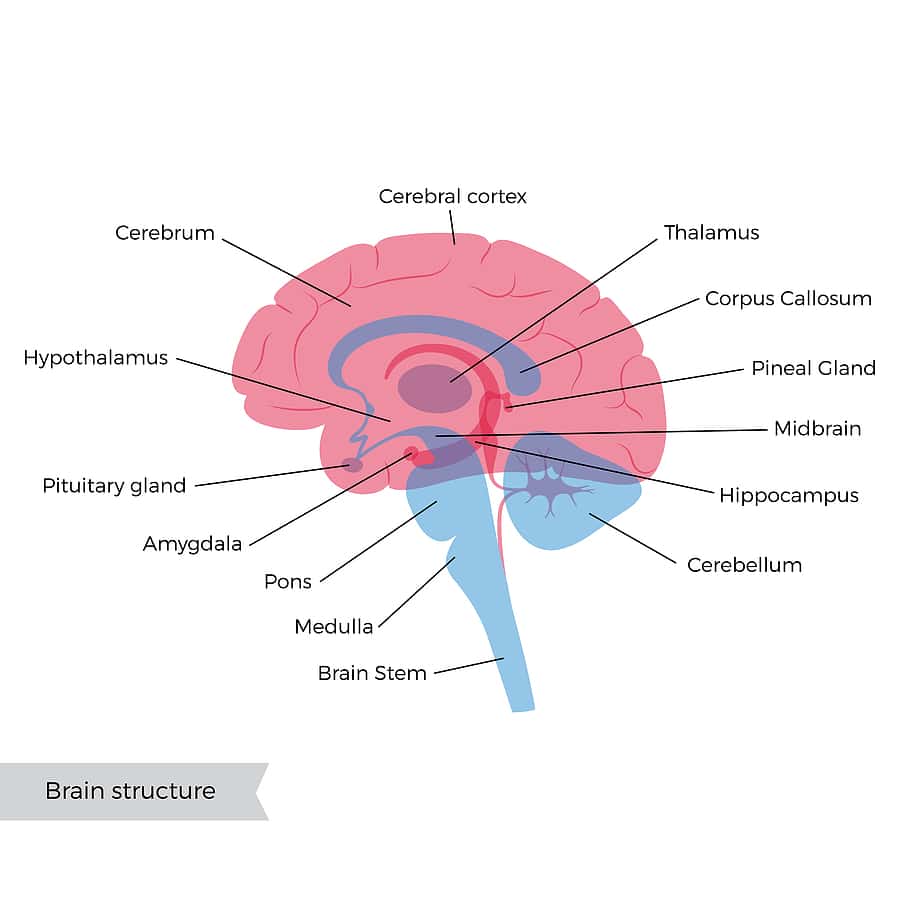

Disruption in the sense of smell, taste, and hearing. The following symptoms are specific to lesions of the temporal lobe: Loss of motor activity on one or both sides of the body. Absence of sense of smell, usually limited to one nostril. The following symptoms are specific to lesions of the frontal lobe: Involuntary movements of body parts, which may progress to convulsions in severe cases. Delayed speech, blurred vision, and impaired hearing. Lack of concentration, the inability to make quick decisions, and agitation. Impaired movement, if the lesion affects the part of the brain responsible for motor skills. Over-the-counter medicine usually offers no relief for the pain. The pain appears suddenly and worsens as time passes. Headaches are usually the first symptom to appear with brain lesions. Many lesions, however, may be in areas of the brain that don’t produce symptoms. Everyone is different and symptoms will vary in individual cases. Symptoms of brain lesions vary depending on the type of lesion, its extent, and where it is found. Tumors are also a cause of brain lesions and abnormal growth of brain cells. Brain lesions are typically a symptom of this disease. #BRAIN STEM SKIN#
Lupus, an autoimmune disease, affects almost all systems of the body ranging from skin to heart, liver, muscles and brain.Those suffering from MS have significant problems with motor and sensory functions. Multiple sclerosis, or MS, is a disease where brain lesions are located in multiple sites of the brain.Stroke, vascular injury, or impaired supply of blood to the brain is perhaps the leading cause of lesions on the brain.Poor diet, especially eating foods with excess fats and cholesterol.

Other toxic substances are elevated levels of ammonia and urea in the body due to kidney issues (can affect brain function but may not show discrete brain lesions). Toxins, such as excessive amounts of alcohol or cigarette smoke, in the body.Exposure to radiation or certain chemicals that increase the chance of tumors and lesions in the brain.Multiple sclerosis can also cause plaques in the brain secondary to damaged tissue. Alzheimer’s disease, a condition that affects a person’s memory, thinking and behavior, develops because of plaques in brain tissues. Plaques, or excess build-up of abnormal protein in the brain tissues or in the blood vessels, slowing down the supply of blood to the brain, as seen in clogged arteries.These result when the body’s antibodies start to attack the body’s own tissues, such as those tissues in the brain. Autoimmune diseases, such as lupus and multiple sclerosis.Tumors that either start in the brain (primary tumors) or travel there (metastatic) via blood or lymphatic vessels.These can cause diseases like meningitis and encephalitis (both types of swelling (inflammation) of the brain).
 Infections, harmful germs or bacteria in the brain. Trauma to the brain, which can cause internal bleeding. Vascular conditions, such as stroke, high blood pressure, and cerebral artery aneurysms. The risk increases if someone else in the family has had the condition. The following factors put a person at greater risk to get brain lesions: Occipital lobe - found at the back of the brain, is primarily responsible for vision.īrain lesions can be caused by many different triggers. Parietal lobe - at the center of the brain, is where sensory information like heat, pressure and pain is received and interpreted. Temporal lobe - located on each side of the brain at ear level, is important for hearing, memory and speech. This area controls memory, intelligence, concentration, temper and personality. There are many parts to the brain, and each section has a specific role to play in the human body.įrontal lobe - the largest of the four lobes, is responsible for the body’s motor skills, such as voluntary movement, language, and intellectual and behavioral functions. The brain controls thoughts, memory, speech, movements of the limbs, and organ function. As lesions worsen with time, the symptoms become more noticeable. At first, brain lesions may not produce any symptoms. At other times, the lesions are present in a large part of the brain tissue. Sometimes lesions appear in a specific area of the brain. Lesions can be due to disease, trauma or a birth defect. Brain lesions are a type of damage to any part of brain.
Infections, harmful germs or bacteria in the brain. Trauma to the brain, which can cause internal bleeding. Vascular conditions, such as stroke, high blood pressure, and cerebral artery aneurysms. The risk increases if someone else in the family has had the condition. The following factors put a person at greater risk to get brain lesions: Occipital lobe - found at the back of the brain, is primarily responsible for vision.īrain lesions can be caused by many different triggers. Parietal lobe - at the center of the brain, is where sensory information like heat, pressure and pain is received and interpreted. Temporal lobe - located on each side of the brain at ear level, is important for hearing, memory and speech. This area controls memory, intelligence, concentration, temper and personality. There are many parts to the brain, and each section has a specific role to play in the human body.įrontal lobe - the largest of the four lobes, is responsible for the body’s motor skills, such as voluntary movement, language, and intellectual and behavioral functions. The brain controls thoughts, memory, speech, movements of the limbs, and organ function. As lesions worsen with time, the symptoms become more noticeable. At first, brain lesions may not produce any symptoms. At other times, the lesions are present in a large part of the brain tissue. Sometimes lesions appear in a specific area of the brain. Lesions can be due to disease, trauma or a birth defect. Brain lesions are a type of damage to any part of brain.







 0 kommentar(er)
0 kommentar(er)
